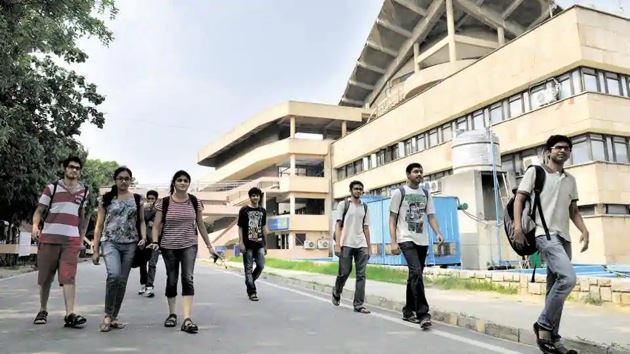Need a practical system to award degrees in times of Covid | Opinion
It is best to negotiate a little with the evaluation process but universities should not lose any more time to work out all dimensions of the curriculum, transaction and assessment in an integrated manner.
Covid-19 has caused immense disruption in every sector of work including education. It has forced institutions to shut down campuses midway without finishing the courses and in certain cases even without completing the examinations. While the issue of public examination at the school stage has been addressed with the timely intervention of the Supreme Court, it is hanging fire in the university system because of lack of unanimity amongst policy makers and the rest of the stakeholders.

The matter has reached such a sorry pass that besides students, even some of the states have come out in open to contest the guidelines issued by the University Grants Commission which requires all universities to conduct the final-year examination by September 2020. It is learnt that the Delhi Government has already asked all its universities to declare their results based on previous performance, letting out a sigh of relief by anxious parents and students.
The entire issue needs to be examined from four perspectives.
The first and the foremost is professional credibility. If students are promoted without ensuring the end product of instructional efforts and without determining whether the learning is sufficiently complete to move on to the next stage, then it raises legitimate questions about the professional credibility of the entire process. Clause 4.1 of the UGC (Minimum Standards of Instruction for the Grant of the First Degree through Formal Education) Regulations, 1985, stipulate that the University “shall” adopt the guidelines issued by the UGC from time to time in regard to the conduct of examination. Clause 4.2 of the same Regulations also mandates Universities to show separately the continuous sessional evaluation and the year-end examination marks. Though the UGC has not done any wrong in issuing the guidelines, they have created ripples which cannot be wholly discounted under the present circumstances.
Secondly, if some of the students have really worked hard and are confident of a much better performance in the last leg than the previous ones, and they get promoted on the basis of earlier averages, then it raises the genuine question of its legal defensibility unless adequate provisions are made for addressing concerns of such candidates.
Thirdly, if our institutions are not able to put in place infallible systems to shatter the coronavirus pandemic, which is lethal and not unfolding its mystery, then it raises serious questions about the safety and security of our students. In fact, it is this aspect which has led to serious reservations in the mind of parents and students about the resilience of most of our institutions and their safety and security measures.
Fourthly, if the majority of stakeholders disregard the consequences of the earlier three standpoints because of the fear of worldwide mayhem caused by the pandemic, then it raises an undisputable question of its public acceptability which need not be dismissed without exploring reasonable alternative measures in these trying times.
One of the serious shortcomings of our system has been that we have never made sincere efforts to institutionalise open book, take home and online examinations due to serious issues of integrity, quality, lack of motivation and adoption and scaling of information communication technology ICT tools. Though we have been talking about the digital transformation of higher education for over two decades, much leaves to be desired. Had we institutionalised the proctored online examinations in our teaching and learning, we would not have faced the current crisis as it allows the candidates to take online exams from any reliable location ensuring all the safety measures required for the conduct of a fair examination. But it is going to take a long time before it percolates down into the system.
This is an issue that cannot be allowed to linger on as it is causing disquiet of limitless proportion amongst parents and students. Having regard to the harsh realities of the ground, we may allow the 2nd and 4th semester students to move on to the 3rd and 5th semester and their exams could either be taken during ensuing vacations, if the situation permits, or clubbed with the 3rd and 5th semester exams. The final semester candidates could be cleared and declared fit for the award of degrees on the basis of the aggregate performance of their previous semesters coupled with sessional evaluation of the final semester, which together would constitute over 83 percent of their course contents. A similar approach could be followed for the final year students of the four-year Bachelors and two or three-year Masters programmes. If there remain some candidates who do not subscribe to this offer, which of course is going to a miniscule number, then a provision could easily be made for their online or offline examinations maintaining all norms of social distancing.
When risk and nervousness are gripping the mind of students and parents amid the pandemic, it is best to negotiate a little with the process of evaluation for the much-needed respite. The alternative suggested is to tide over divergent scenarios being perceived by stakeholders in higher education in view of Covid-19. But surely, no time should be lost any more to work out all dimensions of curriculum, its transaction and assessment, in an integrated manner. The future beckons to blended learning through offline and online modes. Let us move in that direction in real professionalism.
[Prof Ved Prakash is former chairman of the University Grants Commission]






